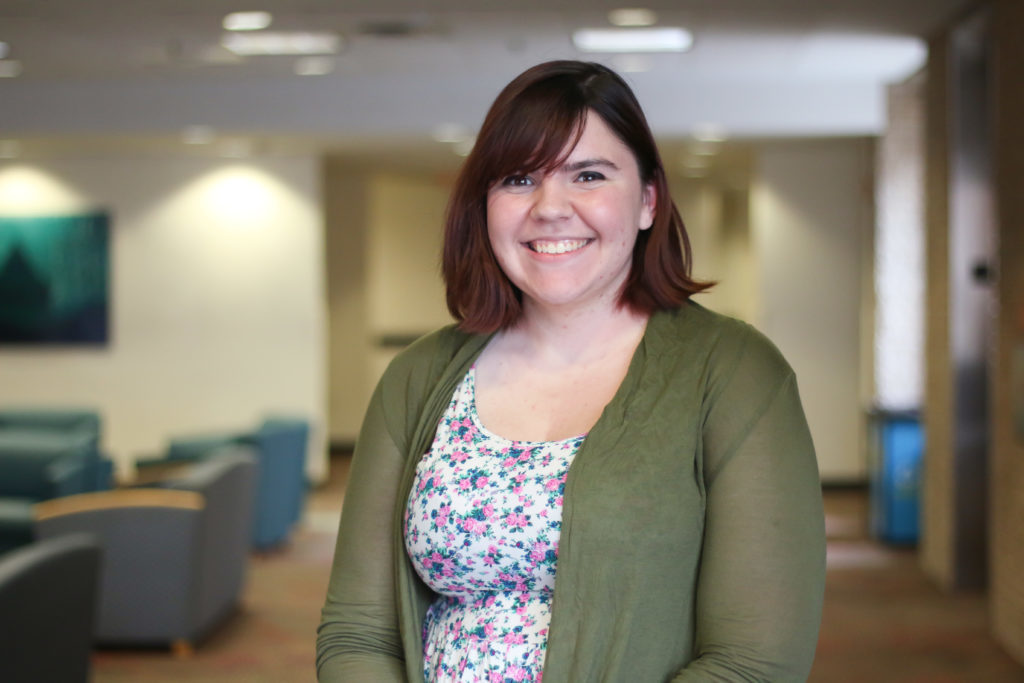The number of students using an anonymous student hotline for mental health services increased nearly six-fold since its launch last academic year.
GW Listens, an anonymous peer hotline for mental health services, increased the number of people using the service from six to 40 students throughout the academic year after introducing a new online chatting and text service in September. Student leaders said the new texting line and online chatting services ensure that students’ voices are kept anonymous because their voices can’t be recognized, and volunteers have more time to effectively respond to students using the hotline.
GW Listens was initially proposed after three suicides in 2014, and the service officially launched last spring following months of delays after a top official working for the program was laid off in 2016.
The hotline received six phone calls during the 2017 spring semester when the program launched, but that number increased to 21 online messages, phone calls or texts this fall and 19 in the spring – an increase student leaders said they want to build upon next academic year.
Gillian Berry, the associate director of mental health services, said staff in the Colonial Health Center train student volunteers for the program and there are 12 new volunteers who completed their training and will be working for the hotline in the fall, she said.
“We appreciate the hard work and commitment from the students who volunteer with the GW Listens program and look forward to seeing what ideas they want to propose in the next academic year to expand peer-to-peer mentoring on campus,” she said in an email.
Anastasiya Parvankin, the outgoing director of the program, said the new features expanded the program’s reach because students are “more adept at talking about issues over text and online messaging” because they know they will remain anonymous – a trend she hopes will continue into the next academic year.
Under Paravankin’s leadership, the program expanded its hours and is now open Sunday through Thursday from 9 p.m. to 1 a.m. – one day more than its initial launch.
GW Listens has retained about 10 volunteers working for the service since its launch, she said. Members of the program recruit volunteers through Student Association newsletters.
“A general long-term goal is for GW Listens to be strongly embedded within the University system, which would include every student knowing about the program, and for the hotline to be open every day,” Parvankin said in an email.
Junior Sarah Gillespie, the incoming director of GW Listens who served as a listener for the hotline this year, said one of her main goals is to increase awareness of the program by posting signs with contact information for GW Listens in academic advising offices.
“It may help it stick better in people’s heads,” Gillespie said.
GW Listens will also streamline its call and text lines – which currently operate as separate services – so that all messaging goes to one anonymous website through the SA website to help volunteers navigate the different platforms, Gillespie said.
James Harnett, the Student Association’s former director of digital policy and innovation, said he used online texting and chat companies, like Twilio, to code the new programs for the fall. Harnett said he will check in on the program during next academic year, but he aims for responders to understand the technology behind the program, so he won’t have to run it himself.
“To try to bridge that learning gap, we’re going to be bringing all those platforms together so that the responders will be better able to reach out and respond to people quickly,” Harnett said.
SA President Ashley Le said she helped promote GW Listens by designing posters and fliers for student organization fairs under her former role as vice president for public affairs this past academic year. Expanding GW Listens’ hours beyond the 9 p.m. to 1 a.m. shift was a goal proposed on Le’s platform for SA president earlier this semester.
“The Student Association will make sure that we are taking care of students beyond their academic experience and beyond their professional development,” she said.
Sydney Nelson, the SA’s former executive vice president, said she and former SA President Peak Sen Chua helped GW Listens secure permanent office space in the Marvin Center as part of their effort to prioritize student health during their tenure.
“I think we’ve taken a very significant stance in the Student Association to say that mental health on our campus is a priority, not only as an advocacy effort but as something that we’re tangibly going to continue with this program,” Nelson said.





